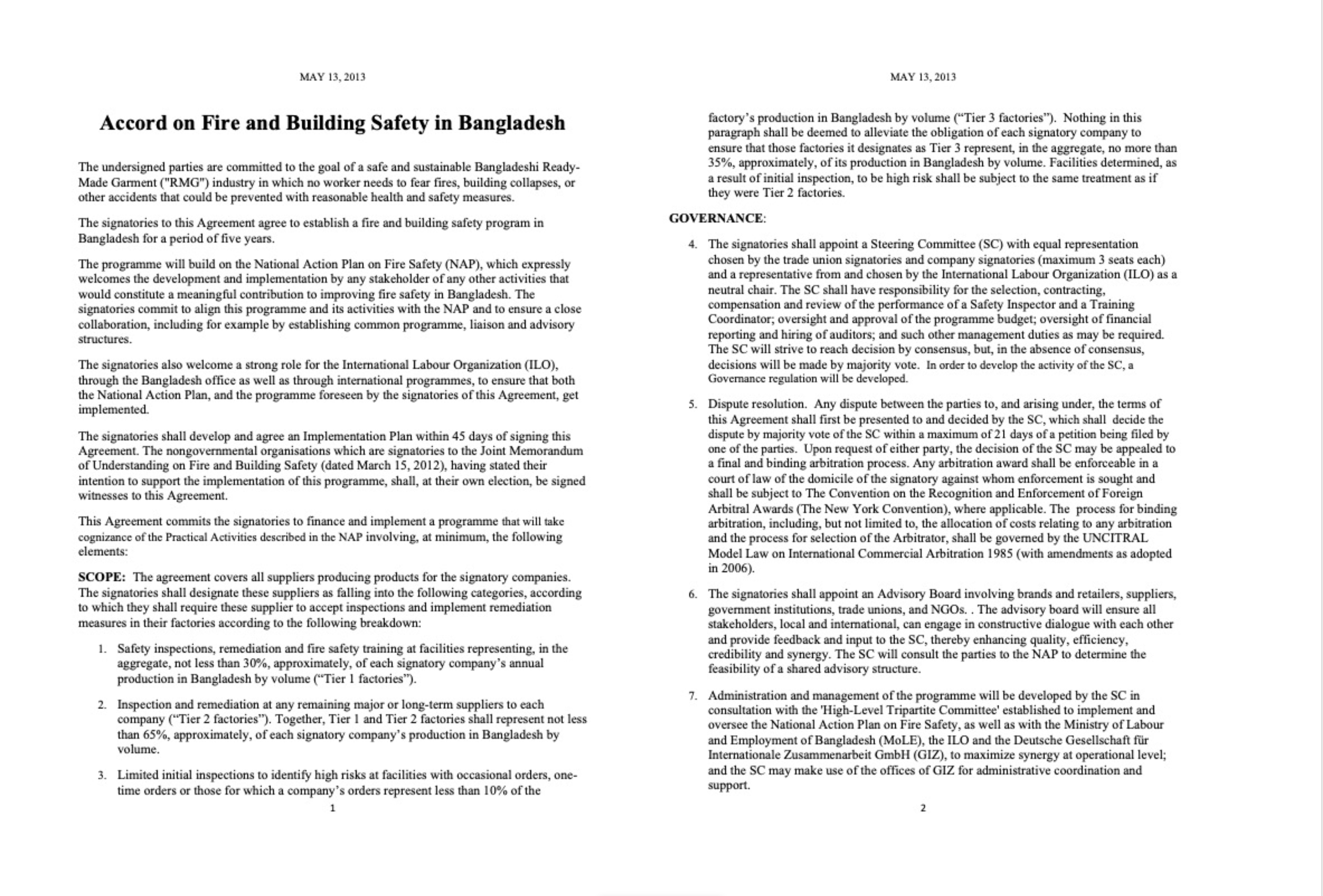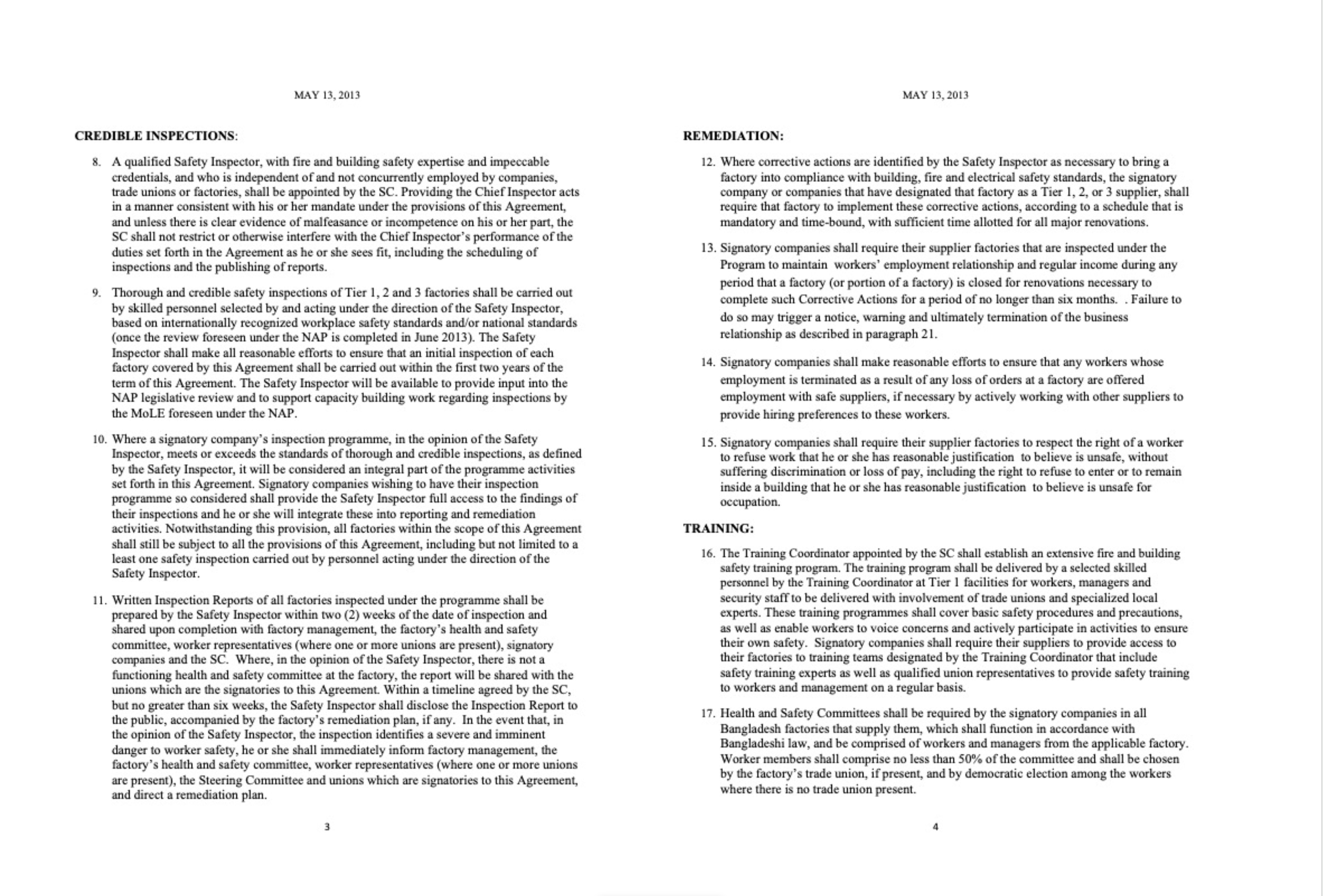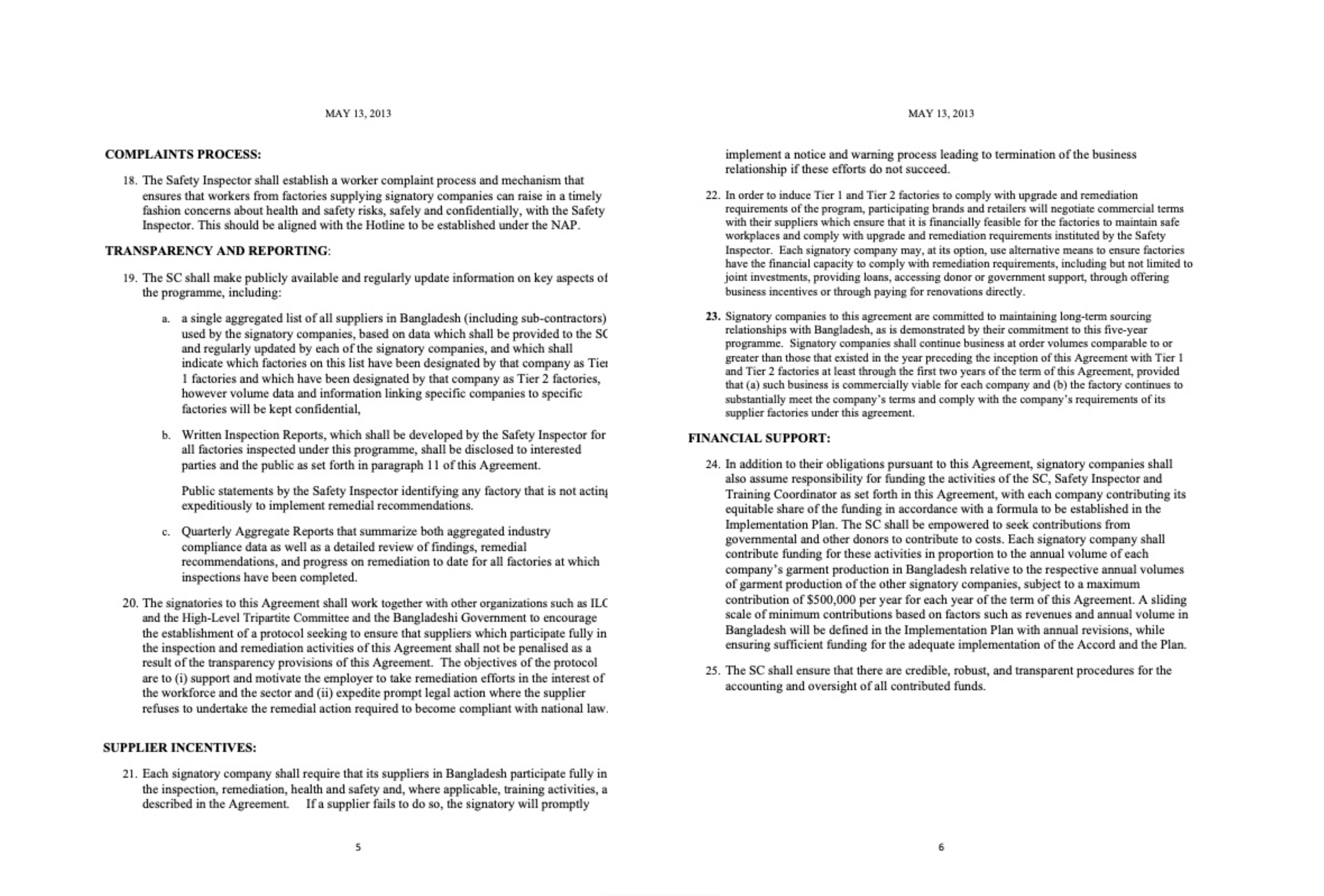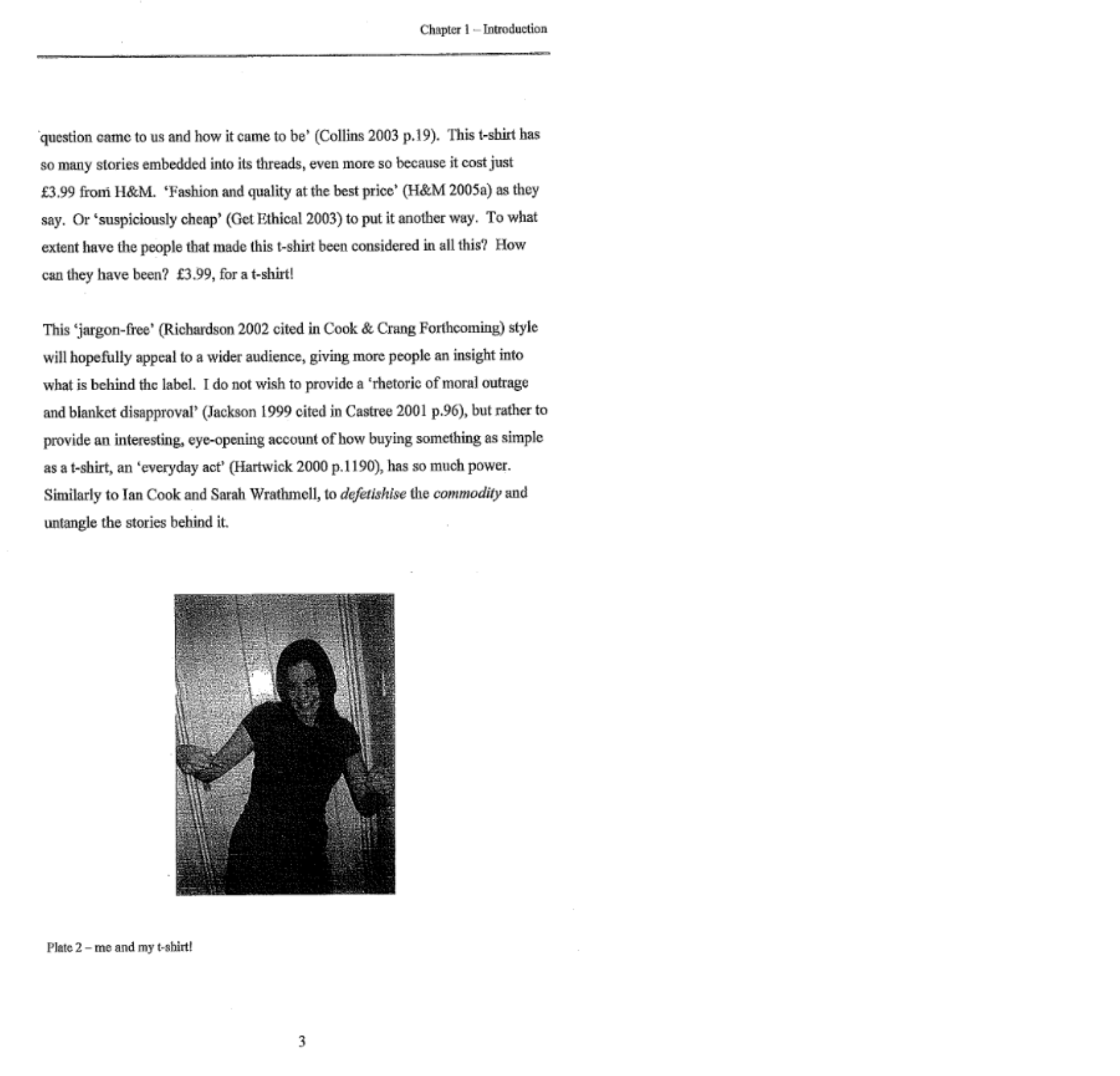

followthethings.com
Fashion | Recycle my waste
“T-Shirt Travels“
A documentary film produced & directed by Shantha Bloemen for Grassroots Pictures.
Watch on Alexander Street here (with institutional login). Search for other streaming options here.
Filmmaker Shantha Bloemen is working as an aid worker in a village in Zambia. She is surprised to see Western band t-shirts being worn by people who could never have heard their music. She wonders how they got there, why people are wearing them. It turns out that they were donated to thrift stores in the USA, were shipped overseas in bundles and bought by garment traders in Zambia to sell in street market stalls. By following the afterlives of thrown-away clothing, she connects good post-consumer behaviours in the West – like charity donation and recycling – with the disruption of economies in the underdeveloped world where they are cheaper to buy than locally-made clothes. She finds that an AC/DC or Chanel t-shirt can connect the life of the Zambian child who is wearing it to the World Bank and International Monetary Fund’s shaping of global trade’s ‘economic colonialism’. Bloemen’s film also makes a point that’s important to our collection – that ‘follow the thing’ work is not only about where things come from, but also where they go.
Page reference: Hannah-Rose Mann & Rebecca McGoldrick (2011) T-Shirt Travels. followthethings.com/t-shirt-travels.shtml (last accessed <insert date here>)
Estimated reading time: 28 minutes.
– ![]()






